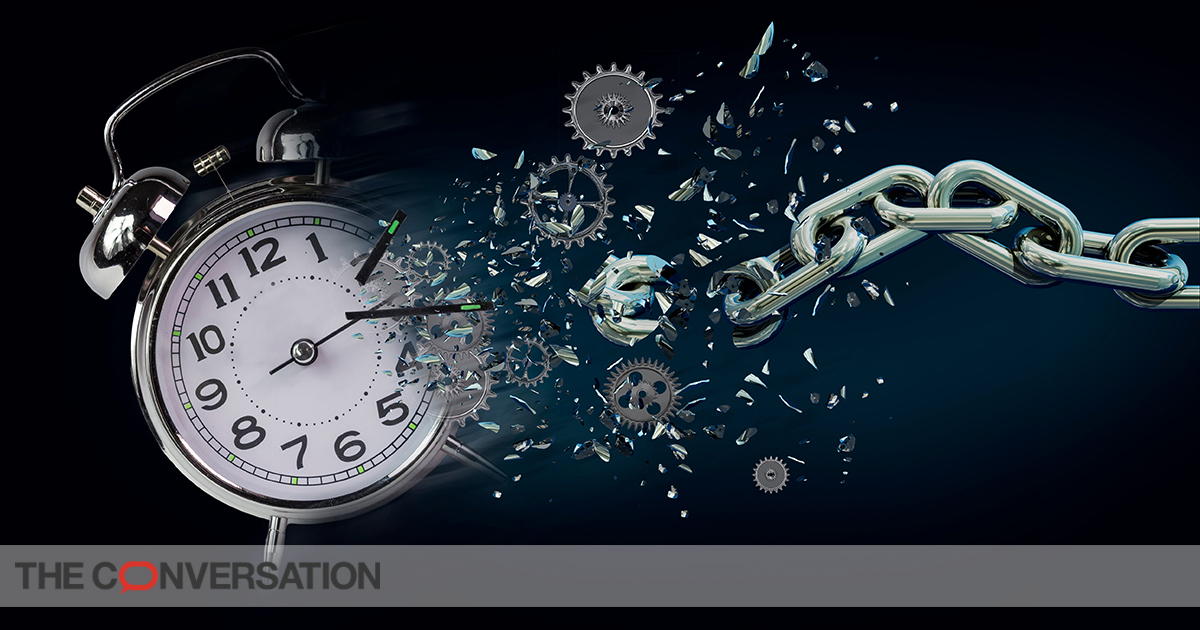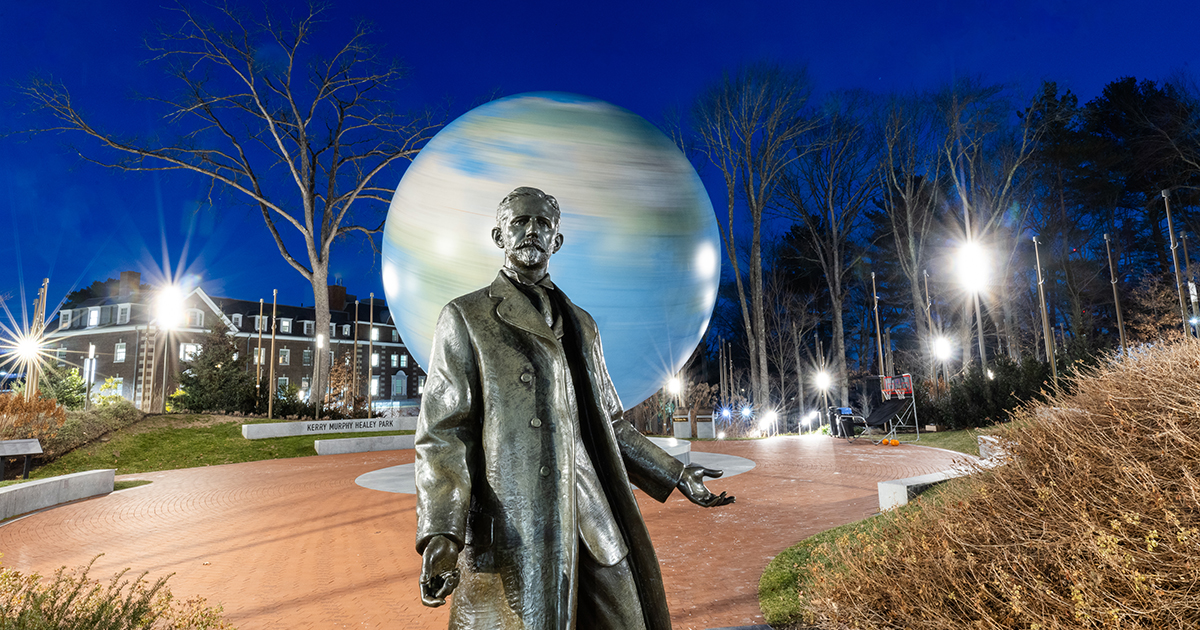How Student Teams Used AI to Tackle Real-World Problems at One-Day Buildathon
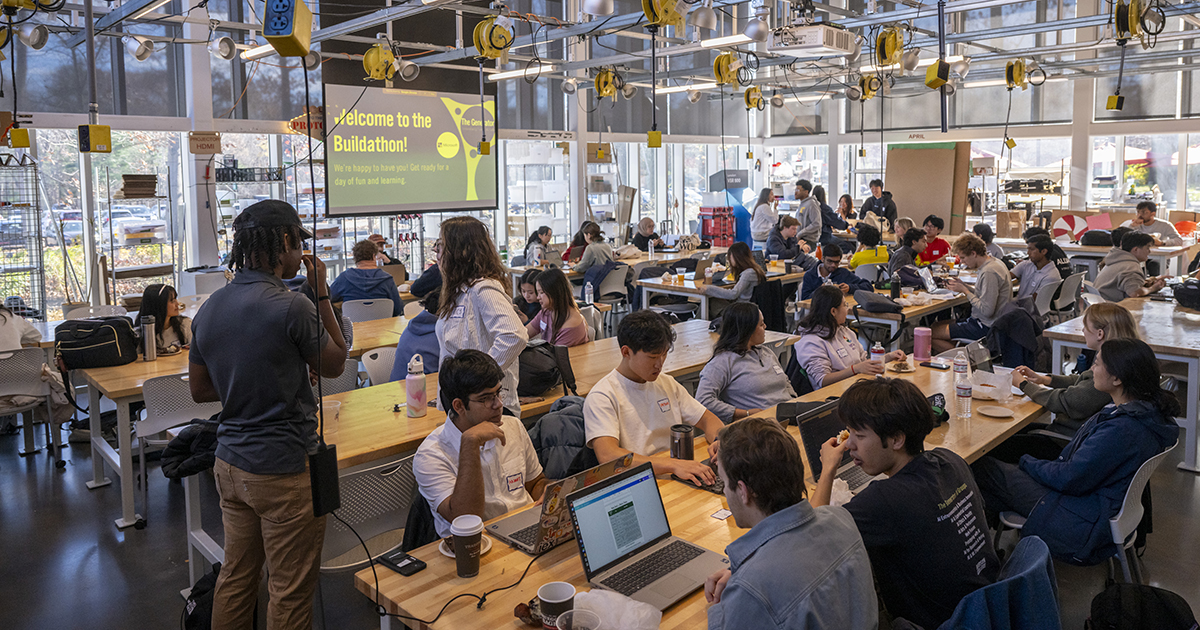
At an hour when most people are asleep on a Saturday morning, more than 200 students gathered last month on the Babson College campus at the Weissman Foundry, a high-ceilinged workspace with 3D printers, studios, and the quiet air of promise.
The Foundry launched in fall 2018 as an open-door hive for innovation, accessible to Babson, Olin, and Wellesley college students with few walls, long workbenches, and plenty of space to collaborate.
This morning, students huddled in corners, hugged, and munched bagels while bent over their laptops. As the early sunlight streamed in, there was a sense that something big could happen at any moment. And it did.
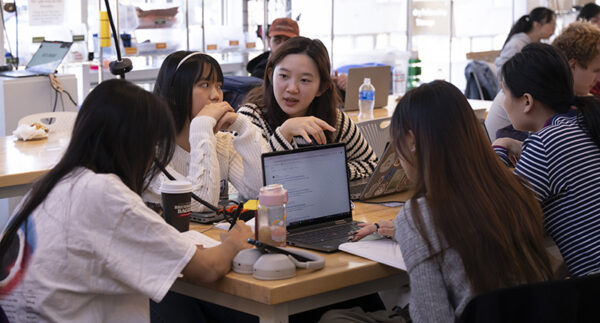
This was the inaugural Generator-Microsoft Entrepreneurship & AI Buildathon, where competing teams would probe the far-reaching entrepreneurial possibilities of AI in just a day. The buildathon—co-sponsored by the Cambridge, Massachusetts, arm of Microsoft Research—was hosted by The Generator, Babson’s interdisciplinary AI lab, which leads AI innovation on campus and beyond.
Erik Noyes, the director of The Generator and an associate professor of entrepreneurship, was impressed with both the turnout and the quality of the prototypes. Their depth, he said, was an indication that students are prepared to influence a complex world where AI can drive change but also unleash a wellspring of complications, such as misinformation and deep fakes.
“The event is proof of concept that there’s a huge appetite with students to mash up entrepreneurship and AI,” said Noyes, also the Michael London ’92 and Stephen H. Kramer ’92 Term Chair in Entrepreneurship. “When people ask us: ‘How does Babson teach entrepreneurship?’ We say, ‘Our students are opportunity-obsessed.’ The concepts we saw at the buildathon were opportunity-obsessed about ways that AI could help real human needs and problems.
“Babson students will be leaders showing the entrepreneurial possibilities of AI, designing AI to address human well-being, while confronting the problems AI could create.”
A Breakthrough Event for a Breakthrough Application
At the buildathon, the student contestants could choose from three tracks: Entrepreneurial AI for Well-Being, focusing on how artificial intelligence can improve lives; AI-Powered Entrepreneurship, creating solutions that speed innovation; and AI Safety & Ethics, developing tools to counter the disinformation and distortions that new technology can unleash.
Students could use a suite of AI tools to work on their prototype, with a few ground rules: Projects had to be created at the buildathon (no prework allowed); laptops would be shut at precisely 5 p.m. The winner would receive $2,500 as well as visibility from the Microsoft representatives and venture capital judges in attendance.
“The event is proof of concept that there’s a huge appetite with students to mash up entrepreneurship and AI.”
Associate Professor Erik Noyes, director of The Generator
Students were excited about competing but even more enthusiastic about hacking on the cutting edge of such provocative technology.
“I’m in Babson’s Entrepreneurship Opportunities in AI class that I love,” Gabrielle Peterson ’25 said. “It’s a bit of an experimental course this year, and I wanted to expand my learning and knowledge by coming today. I love how AI can blend into any industry, how it can help in so many ways we don’t even know about yet.”
Derick Galhardo ’28 added: “This is just a whole new boundary we’re breaking—as humans, as business owners—and there’s so much promise.”
When Entrepreneurship Meets AI Opportunity
The winning team, a mix of Babson and Olin students, created Factuality: AI-Powered Fact-Checking, a real-time, fact-checking Chrome extension designed to counter what they called “misinformation mayhem.” Users could instantly fact-check information found online, or self-check user-generated content before posting.
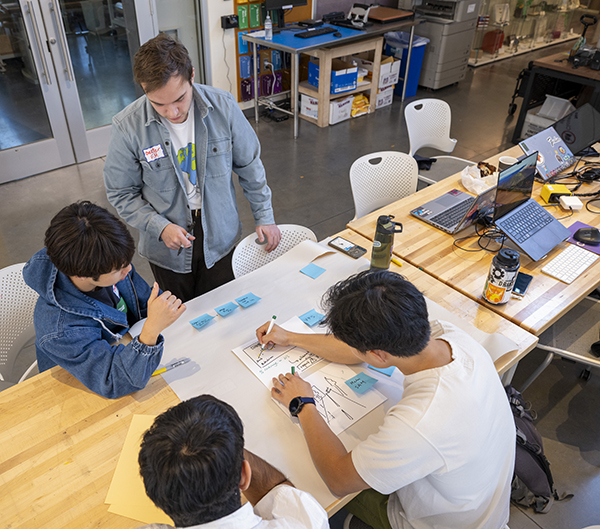
“Let’s say you’re writing an essay or reading an article online: You can highlight any part of the text, click a button with our Google Chrome extension, and find out if the information stated is true or false, with sources to back it up,” explained Robert Sevcik ’28, one of the creators. “We went even further, and also created an AI-generated image detector and pitched the possible expansion to deep fake detection.”
The team hopes to launch its idea on the Chrome store within the month, building a user base primarily among students. Ultimately, the creators aim to partner with social media platforms to integrate their tool to fact-check user-generated content, too.
Does this sound like an audacious dream? Teammate Taihei Eastwood ’28 said it’s all possible: When it comes to entrepreneurship, AI is both an innovation genre and a democratizing fuel, thanks to tools such as Codium and Cursor AI, which provide real-time coding help and debugging. Technical acumen is no longer a stumbling block. Students are limited only by imagination.
“The neat thing about AI and entrepreneurship is that it allows people to realize their ideas so much easier,” Eastwood said. “Babson is a business school. Some of the time, when you’re working on a technical project, you want to outsource the labor, because people don’t have the technical skills here. But with AI, you can do and learn a lot of it yourself.”
Limitless Possibility with a Babson Mindset
Generator student leader Spencer Karns ’27 co-organized the event. His team won second place for Actus, a personalized AI assistant—what they called an “empathetic life-management system”—that prioritizes daily tasks based on a user’s life goals, emotional state, and wellness trends.
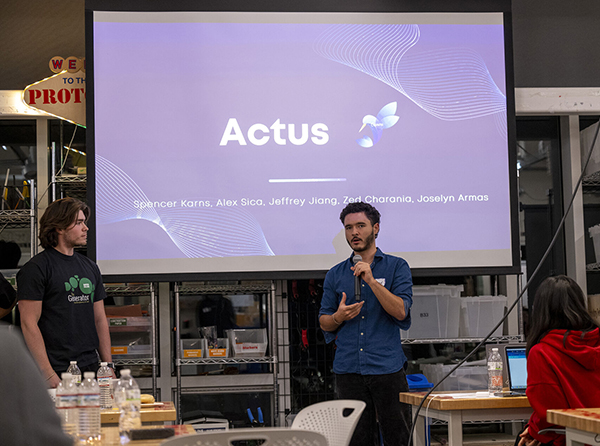
The app asks basic questions: How’s your mood? How much exercise have you gotten? Based on the answers, it calculates a score detailing confidence, self-efficacy, and emotional stability. Based on the scores, the app generates potential tasks, from working out to calling your mom—an ambitious project, but again, doable.
“One of the biggest things we wanted to communicate through the event is that the barrier to entry with technology and building as a whole is pretty much coming down,” Karns said. “Everything is becoming language-input based, and there’s going to be a massive sharing of knowledge. Entrepreneurship is going to be blown wide open.”
Karns noted the success of the event, including how student leads demonstrated AI coding and ideation tools, such as BoodleBox.ai, a collaborative workspace, as well as what made teams successful. “We saw the best teams focus most on solving the right problem,” he said. “The best results come from people solving for problems they feel are real.
“At the same time, we’re one of the most prestigious schools that doesn’t seem to have a trend of cutthroat competition. There’s so much collaboration and growth through experiential learning,” Karns added. “For the Babson community, these kinds of events are exactly what experiential learning is supposed to be.”
Based on the success of the inaugural event, Noyes said, The Generator plans to host theme-based buildathons with different corporate partners at the Foundry every semester.
“I think the Babson mindset is more valuable now more than ever, in terms of managing complexity and finding opportunity amongst risk,” he said. “This, to me, is the value of a Babson education.”
Posted in Community, Entrepreneurial Leadership
